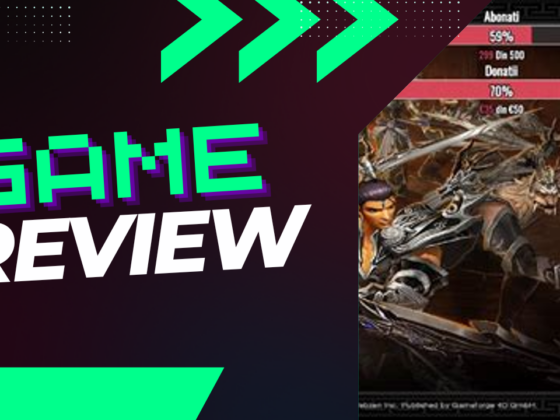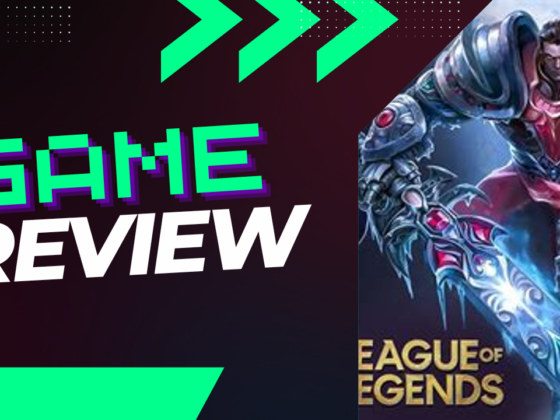In the high-stakes world of League of Legends, every kill feels like a badge of honor, but does that kill truly translate into strength? Picture this: as you slay your opponent, a surge of experience points and gold floods into your arsenal, transforming your champion from a mere player to a formidable force on the battlefield. This moment not only boosts your power, but it can also tilt the balance of the game, altering team dynamics and turning the tides in your favor. So, are kills just for show, or do they really pack a punch in the grand scheme of the game? Let’s dive deeper.
Do kills make you stronger in League of Legends?
Kills significantly enhance a player’s strength in League of Legends by offering both experience points (XP) and gold, both crucial for a champion’s advancement and overall power in the game.
When a player secures a kill, they gain 75% of the total XP needed for their next level, which can elevate their effectiveness on the battlefield. This level advantage can shift the dynamics of team fights and skirmishes, allowing players to benefit from more powerful abilities and increased stats sooner than opponents.
In addition to XP, the gold earned from kills can be strategically invested in higher-tier items, further boosting champions’ combat capabilities. For instance, accumulating funds can lead to the purchase of critical items tailored to a champion’s role—like damage-enhancing weapons for assassins or protective gear for tanks—enhancing survivability and damage output.
This synergy creates a feedback loop: the more kills you secure, the stronger you become, enabling you to take on tougher opponents and ultimately influencing the game in your favor. Moreover, kills not only offer personal benefits but can also have a wider impact, as taking down key opponents can lead to objectives like towers or dragons, which exponentially increases your team’s strength and strategic position in the match.
In essence, kills are a vital component of League of Legends, transforming the player’s gameplay experience by enhancing power through XP and gold, fostering a strategic advantage that can lead to victory.
How much XP do you gain from a kill?
When you secure a kill, you earn 75% of the experience points (XP) needed for promotion from the level of the enemy you defeated to the next level. For instance, taking down a level 5 opponent not only provides a hefty XP boost but also pushes you significantly closer to leveling up to level 6.
This mechanic can be crucial for your progression in the game as advancing levels often unlocks new abilities, gear, and combat advantages. The amount of XP gained can drastically impact your effectiveness in future encounters, making strategy in choosing your battles all the more important.
Additionally, the XP gained from kills is an excellent way to quickly level up if you strategically target enemies that are just above your current level. Remember: the higher the enemy level, the more XP you’ll earn upon defeating them, which can be a game-changer for enhancing your skills and equipment.
It’s also worth noting that players should engage in strategic planning to maximize their XP gains—consider teaming up with allies to tackle stronger foes or using game mechanics that allow you to weaken enemies before dealing the final blow.
In summary, kills not only reward you with XP towards leveling up but also play a significant role in shaping your overall combat strategy and progression.
What are the gold rewards for kills in League of Legends?
In League of Legends, securing a kill rewards the player who delivers the final blow with a base bounty of 300 gold. This base amount is influenced by various factors, particularly the champion’s current state in the game.
The bounty system adjusts based on a champion’s performance: if a champion is on a killing spree, the gold bounty increases. For instance, every consecutive kill your champion achieves boosts your bounty, thereby providing greater rewards for further kills. Conversely, if a champion has died multiple times without securing a kill, their bounty starts to decrease.
As an example, if a champion has consistently dominated their lane and secured several kills in succession, their bounty can rise significantly, sometimes exceeding 1000 gold. This incentivizes aggression and strategic plays in the game. On the flip side, a champion who has died several times without landing a kill may find their bounty decreasing down to 100 gold, making it crucial to adapt strategies to avoid becoming an easy target.
This dynamic bounty system encourages players to be mindful of their performance, affecting both individual play and overall strategies as teams aim to capitalize on these changing rewards during matches.
Can you gain buffs from kills?
Can you gain buffs from kills?
Absolutely! When you eliminate an opponent, if they held any transferable buffs, you will inherit those buffs, and their duration will reset. This mechanic can significantly enhance your performance in subsequent battles, giving you a tactical edge by leveraging the advantages derived from fallen enemies.
To dive deeper, certain buffs can include stat enhancements like increased attack damage, ability power, or movement speed, which can turn the tide of a skirmish. For instance, if you defeat a champion with a strong offensive buff, you’ll not only gain that power but also extend its usability for your own strategies. This creates a compelling reason to engage in fights, especially when you can take out champions just as they acquire their buffs.
However, keep in mind that timing is crucial; the effectiveness of these buffs can depend on how you capitalize on them immediately after the kill. Try to position yourself strategically following a kill to maximize the potential of the buffs you’ve obtained. By doing so, you’ll not only boost your own capability but also create momentum for your team in team fights or objectives!
What are champion bounties, and how do they work?
Champion bounties are a game mechanic that rewards players with gold for eliminating opponents who are on a killing streak. The system incentivizes players to engage strategically, adding an exciting layer to gameplay dynamics.
When a champion starts the game, their bounty is set at a default of 300 gold. As they achieve consecutive kills without being defeated, their bounty increases, reaching a maximum of 1000 gold after a tier of +8. This means the more successful a player is at securing kills, the higher the reward they can earn when they are taken down.
Conversely, if a champion dies, they risk losing their bounty. Deaths can demote them into negative bounty tiers, effectively reducing the total gold reward available to their killer. This creates a compelling balance where players must weigh their desire for aggression against the risk of being killed, ensuring that the champion bounty system actively influences player behavior throughout the match.
To illustrate, consider a player who has built up a significant bounty due to multiple kills. If an opposing player successfully eliminates them, they can receive the full bounty amount, providing a substantial boost to their gold and resources. This mechanic not only encourages players to hunt down high-bounty champions, but it also fosters intense competition and strategy during gameplay.
How does an execution differ from a kill?
How does an execution differ from a kill?
An execution refers to a champion’s death that happens without them being damaged or affected by debuffs for a specific duration. This type of death results in no rewards for the enemy team, allowing the executed champion to exit the game without granting any immediate advantages to their opponents. In contrast, a kill is credited to the player who last inflicted damage or applied a debuff to the champion prior to their demise, resulting in direct rewards such as gold and potential kill bounties.
To delve deeper into this distinction:
- Execution Details: Executions can occur under circumstances where champions are incapacitated by effects such as crowd control or simply outmaneuvered. As executions do not contribute to kill bounties, they serve as a strategic maneuver in gameplay, often occurring during team fights or flanking maneuvers.
- Impact on Experience: Even though executions do not yield kill bounties, they still allow enemy champions in proximity to gain experience, which is crucial for maintaining an advantage in levels. This means that while the enemy team doesn’t receive gold, they can still obtain valuable experience points.
- Game Strategy: Understanding the difference between executions and kills can affect gameplay decisions. For instance, players might choose to focus on executing instead of achieving kills in specific scenarios to deny the enemy team rewards.
To wrap it up, knowing when an execution occurs and how it contrasts with a traditional kill can significantly inform your tactical approach in the game, enabling you to make more informed decisions that shape the outcome of encounters.
What is a multi-kill, and how does it affect gameplay?
A multi-kill occurs when a player eliminates multiple champions in quick succession, like earning a double kill (two kills) or a pentakill (five kills). These feats are more than just impressive stats; they can dramatically impact the flow of a match.
When a player achieves a multi-kill, it often results in a significant influx of gold and experience points (XP), allowing them to level up faster and acquire better gear more quickly than their opponents. This financial and statistical advantage can enable the player to build a stronger character, leading to dominant plays in future encounters.
Moreover, there’s a psychological element at play. Securing multiple kills not only boosts a player’s confidence but can demoralize the opposing team, possibly leading to mistakes out of frustration or hastiness. For instance, a team that has just suffered a pentakill might become overly aggressive or careless, opening doors for further exploits by the multi-killer’s team.
In competitive gameplay, understanding when to engage for a multi-kill, as opposed to cutting your losses, can be a game-changer. Successful execution often requires effective communication with teammates, strategic positioning, and timing to maximize both damage and survivability. Best practices for achieving multi-kills include targeting isolated enemies, utilizing crowd control skills to disrupt opponents, and maintaining awareness of escape routes to avoid retaliation.
However, it’s important to remember that aiming for multi-kills can lead to overexertion; players should always consider their team’s overall positioning and objectives to avoid getting caught in unfavorable situations. Common pitfalls include diving too deep into enemy territory or neglecting team objectives, which can shift the game’s balance back to the enemies.
In summary, a multi-kill is not just a testament to a player’s skill but also a pivotal point that can shift the game’s momentum. Understanding its effects on gameplay can greatly enhance a team’s chances of victory.
What impact do assists have on rewards?
What impact do assists have on rewards?
In multiplayer games, assists play a crucial role in shaping the dynamics of collaboration and strategy. When players contribute to a kill, they earn assists, allowing them to share in the experience and gold rewards associated with that kill.
Assist bounties are calculated from the total kill bounty and are distributed evenly among all teammates involved. This system fosters teamwork, as it incentivizes players to work together to secure kills, rather than relying solely on individual performance. In tightly contested battles, where every point of experience and gold can make a significant difference, these assist rewards become even more vital. They not only recognize the contributions of all players in a team but also promote a collective approach to engagements, ensuring that everyone feels valued for their participation.
Moreover, assists can encourage strategic play; for instance, players might focus on dealing damage to enemy champions without delivering the final blow. This emphasizes the importance of coordination and skillful teamwork, making the gameplay experience richer and more engaging for everyone involved.









